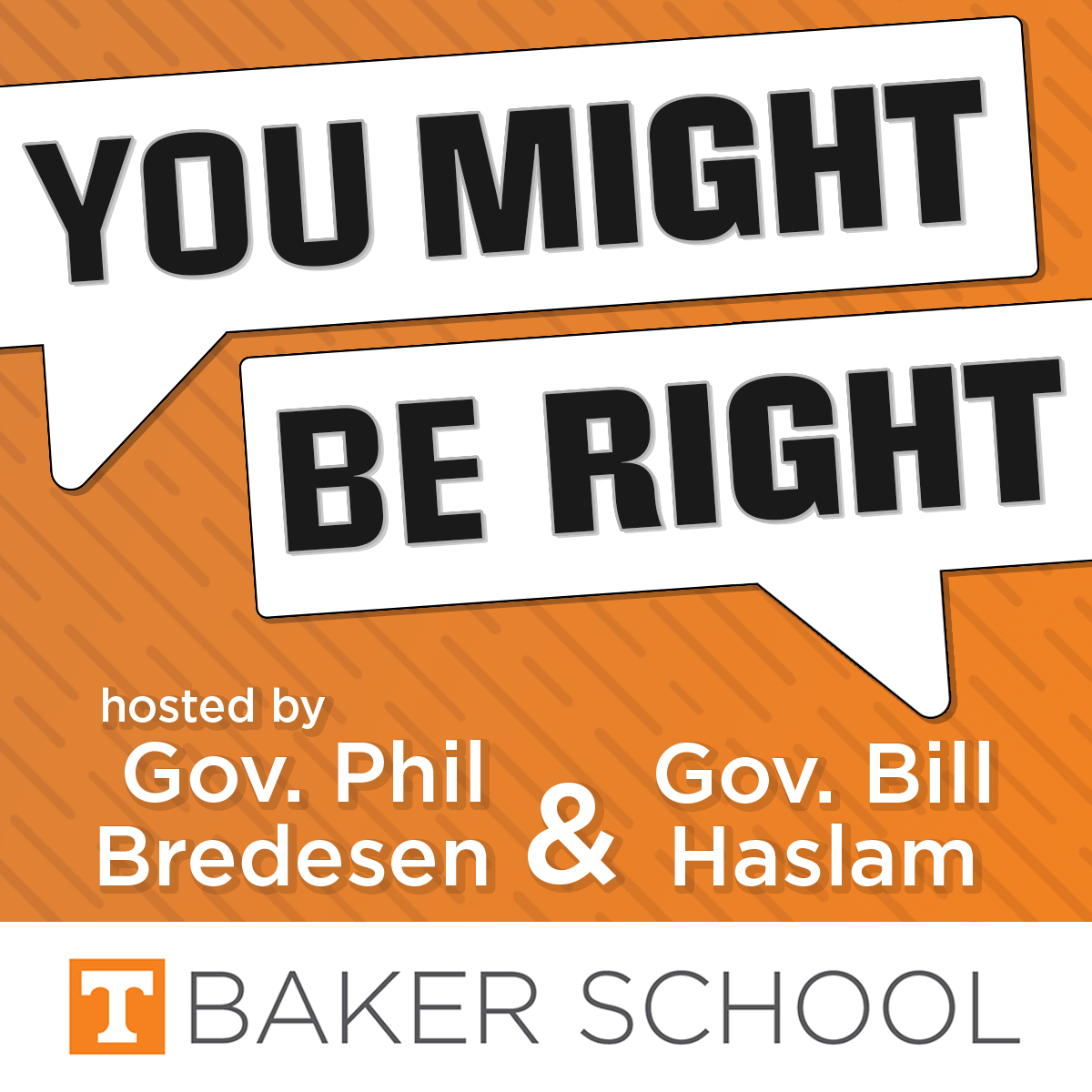Is this the end of free trade?
Over the past 10 years, America’s economic growth has dramatically outpaced the rest of the developed world. American voters, however, have shifted away from favoring the sort of free market policies that characterized American trade in the post-World War II era, and towards more restrictive policies that economists suggest with lower economic growth, domestically and abroad.
To kick off a new season of You Might Be Right, our hosts, former Tennessee Governors Phil Bredesen and Bill Haslam, discuss trade policy and the impact of tariffs with Heather Long, opinion columnist at The Washington Post, and James Lake, associate professor of economics at the University of Tennessee. Are economists wrong about the gains from lower barriers to trade or are Americans increasingly prioritizing other things in determining how we will trade with the rest of the world?
Subscribe and follow You Might be Right wherever you get your audio content – including Apple Podcasts and Spotify – to never miss an episode, or sign up for our email list to receive new episodes straight to your inbox each week here.
“A tariff is nothing other than a tax on imports”
The conversation kicked off with a discussion about how tariffs work. Who pays for them?
“A tariff is nothing other than a tax on imports,” Lake explained. “If the foreign exporter in the other country that’s selling here to the US doesn’t change their price, then the tariff would pass fully through to us, as US consumers. There’s a chance that the foreign exporter may take a discount, and so then, the tariff wouldn’t fully pass through to us as consumers, but at the end of the day, it’s a tax on imports, and the price of the imported good will go up.”
It’s not all bad news, though. “On the flip side, the potential benefit is that the tariff is going to stimulate domestic production on the goods that are hit with tariffs,” he added. “Now that the foreign exporter is facing the tariff, the price has gone up on imported goods. Domestic producers can use that as a bit of a shield to raise their own prices as well.”
“Short-term win versus what the long-term strategy is”
The group then turned to another pressing question: Are tariffs an effective negotiating tactic?
While acknowledging “there are so many different answers to this question,” Long emphasized the importance of having a clear, long-term strategy.
“I think what’s really tricky here is you can’t just threaten tariffs every month and expect to get a concession again and again,” she said. “At some point…people get tired, particularly if they felt like they were a friend of the United States and an ally of the United States, of being threatened with these tariffs, and they’re going to find new trading partners or they’re going to find new markets or they’re going to find ways around these tariffs. And so I think there’s sort of a short-term win versus what the long-term strategy is, and that’s where there’s a lot of frustration around what President Trump is doing.”
Long noted that one scenario where we might need a different approach is in dealing with China, which “plays by totally different economic policy rules.”
“So what do you do when you have someone like China who is completely so far away from free market economics? Do you punish them? Do you fight back?” she said. “I think that’s been a real awakening in Washington and a sea change in the past decade.”
“There’s always winners and losers”
Asked what potential trade policy changes they would prioritize to balance national security, economic, and labor concerns, both Long and Lake shared a variety of ideas.
Long noted that in addition to tariffs, another way to offer support and protection to certain industries is through investments. “Some of this is also about countering China and other nations by strategically investing some money from our federal government into these key industries of tomorrow,” she said.
Lake urged an emphasis on developing a better understanding of how trade policy can have adverse impacts that are concentrated on certain groups of people, noting “lots of people are upset with trade policy, lots of people have lost.”
“The free market doesn’t say that everyone in the US is going to be a winner,” he explained. “The free market says that there’s always winners and losers from price changes. We need to understand that and better identify where are those losers going to be? Are they concentrated to a particular type of worker, to a particular type of location? Especially a particular type of location, because there can be a lot of costs there. And in particular, that can really affect public policy for generations to come, and that’s what we’re seeing today.”
Subscribe and follow You Might be Right wherever you get your audio content – including Apple Podcasts and Spotify – to never miss an episode, or sign up for our email list to receive new episodes straight to your inbox each week here.

Join the conversation on Twitter by following @UTBakerSchool, @PhilBredesen, and @BillHaslam.


